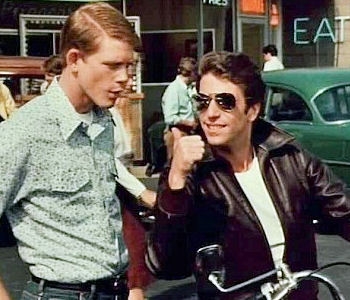The worst days of those who enjoy what they do, are better than the best days of those who don’t.
– E. James Rohn
I ran into a long-time co-worker the other day. She has a great position, excellent benefits, and is dutifully taking care of her family – paying the bills and putting her kids through college. I remember having this very same conversation with her ten years ago:
Me: “What are your plans?”
Her: “Nothing. I’m not going anywhere. I’m staying right here.”
Me: “What about retirement?”
Her: “I can’t. Maybe in a few more years once my kids graduate from college.”
Me: “How about a new job or position in the company?”
Her: “Nah. I don’t know how to do anything else.”
Then it hit me. I was basically talking to myself in the future.
My friend is an honest, thoughtful, and responsible person who is taking care of her family like a good wife and mother is supposed to. That’s not what I’m talking about. What I see and hear though are the ghosts of career years passed. I remember her telling me, at one point, how she wanted to work in law enforcement. But now, her verbal and nonverbal cues scream comfort and, worse than that, resignation – resigned to the fact that this will be her final career stop until she either retires, her kids finish college, or God forbid, she is laid off.
Even though she’s older than me, we both come from a time where our career paths were pretty much laid out for you. In fact, the running joke was when someone from management came and tapped you on the shoulder (literally) it was time to be promoted. I always found this analogy funny because it sounded like some sort of mafia ritual.
But times have definitely changed. There are now only a small percentage of companies that you can stay with your whole career while periodically getting the “tap on the shoulder.” Looking back at that same conversation ten years ago, you know what I told myself then?
“That won’t be me.” Guess what? That is exactly me.

So now what? Do I feel sorry for myself? Reminisce about “the good old days?” Blame my parents, spouse, kid, environment? No. We can all begin where we’re at and:
TAKE STEPS FORWARD
As soon as you can, do whatever will move you towards your ideal work life – whether it’s sticking to the “9 to 5” world or starting your own business. Start a niche blog about something you’re passionate about. Develop (and sell) that product. Write your book. As for me – in addition to reading (and listening) to all the materials I could get my hands on about midlife change, career re-engineering, and life transitions – I started this blog and took a few online writing and career development seminars. I had a magazine article published for the first time. I started exploring other career options where I could leverage my strengths. If you’re reading this and are currently (or have been) in the corporate world, you can relate to my story. And for those of you starting out or are new in your respective careers, take this advice from someone already far into the corporate game:
The phenomenon of the “golden handcuffs” is very real. The mind and body are naturally lazy and enjoy steady, predictable routines. When you’re accustomed to a nice job, steady paycheck, and great benefits, your mind and body will fight you tooth and nail at the first sign of desired change. The “handcuff” refers to that which keeps you bound and tied up – the job and all of your responsibilities (bills, children, mortgage, etc.) If you know what you’re doing is not what you want to be doing, get out before you get locked down.

Find your sweet spot. On the flip-side, if you really love what you’re doing, consider yourself very fortunate. I’ve seen career discontent survey rates as high as 50%. The key to finding work that you are passionate about is to intersect your values, strengths, personality type, and interests. For this, you will need to grab a notebook, find a quiet spot, and take some time to map this whole thing out. This one-hour (or however long it takes) exercise will pay dividends in helping you determine exactly what you want to do (or point you in the right direction).
Experiment with it. There’s no need to completely jump ship from your job. There might be opportunities within the company that are a better fit for you. Have a conversation with the manager of another department. See if you know anyone from a different division, take them to lunch, and pick their brain. You might even be able to find volunteer or internship opportunities in your area of interest. This is a great win-win opportunity. You get the experience and the business gets the free help.
Don’t be afraid to fail. Look, you might get that opportunity to try a new position and find out that: 1) it wasn’t what you thought it would be; 2) it really wasn’t a very good fit; and 3) the job really sucks. Congratulations! You can compare yourself to Thomas Edison and his legendary thousands of failures. You didn’t fail…you just found something that didn’t work. Like Jay-Z says, “On to the next one…”
One of the characteristics of a midlife crisis is waking up one day and feeling like you’ve squandered all of your years in a job you did not love. You didn’t become that ballerina, NAVY Seal, or professional baseball player. The beautiful thing about life, though, is it gives us choices. Yesterday’s dream career might be gone (or the shelf life expired), but you can always find (and pursue) that new career dream today.
How do you define career happiness?
Post your comments below…











